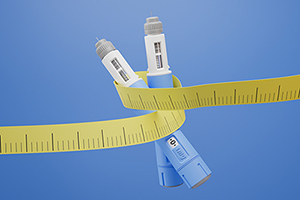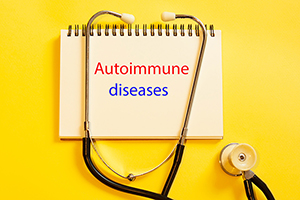



| By Dr. Ronald Hoffman
Nothing epitomizes the limitations of the “magic bullet” approach of allopathic medicine better than this recent “breakthrough” study, featured in last week’s New England Journal of Medicine. Entitled “Anti-inflammatory Therapy with Canakinumab for Atherosclerotic Disease,” the study conclusively demonstrates that you can prevent heart attacks and hospitalization for unstable angina requiring stents or bypass by reducing inflammation. An added benefit was a slight reduction in cancer—another inflammatory disorder.
 However, at the end of the study, the same number of people had died whether they took the powerful immunosuppressive drug canakinumab or not. It turns out the deadly side effects of fatal infections and sepsis canceled out the heart benefits. Why should that be so? Because inflammation is part of the body’s natural defense against pathogens.
However, at the end of the study, the same number of people had died whether they took the powerful immunosuppressive drug canakinumab or not. It turns out the deadly side effects of fatal infections and sepsis canceled out the heart benefits. Why should that be so? Because inflammation is part of the body’s natural defense against pathogens.
Take home message: As with blood pressure, blood sugar, and LDL cholesterol, it’s not how low you go with inflammation, it’s how you get there.
Canakinumab is a monoclonal antibody, the newest cash cow of the pharmaceutical industry. It’s no wonder that the ads you see on TV are now predominately for these “Mabs” as they’re called—miracle drugs for rheumatoid arthritis, cancer, MS, psoriasis, Crohn’s Disease and ulcerative colitis—that cost tens of thousands of dollars a year! They’re even used to coat the stents that open up blocked coronary arteries.
Tampering with Mother Nature by knocking out a key inflammatory pathway with a powerful drug ordinarily used for rheumatoid arthritis is clearly not the way to go for the tens of millions at risk of heart disease.
I enumerated some of the many natural ways to protect your heart and lower C-reactive protein (CRP) in an article I wrote a couple of years back.
The lead author of the New England Journal canakinumab study is a good guy, Dr. Paul Ridker. I invited him to be a speaker at an integrative medical conference (ACAM) about 15 years ago when the notion that inflammation was a driver of cardiovascular disease was novel. Credit him with the insight that elevated C-reactive protein, or more precisely highly-sensitive C-reactive protein (hsCrp) is a major predictor and driver of heart disease. As a result, many doctors like me now routinely include hsCRP in a cardio risk assessment.
But somewhere, possibly succumbing to the temptation to monetize his theory, Ridker capitulated to the BigPharma paradigm. His was the impetus behind the Jupiter Trial in 2008 which demonstrated that statins (Crestor) could lower hsCRP and thus reduce heart risk above and beyond their ability to lower cholesterol.
Unfortunately, the net result of Jupiter was to justify the recommendation of statins for an additional 20 to 30 million Americans with normal cholesterol but with hsCRPs greater than 2.0! Now, seemingly upping the ante, Ridker has trialed the use of an even more targeted inflammation smasher, canakinumab. But, because of its price and deadly side effects, it’s doubtful the drug companies can ever make it commercially viable for heart disease prevention. An editorial in the New England Journal of Medicine concludes:
“ . . . any discussion of the use of canankinumab in patients with previous myocardial infarctions must consider cost. Given monthly for approved indications, canakinumab is priced at approximately $200,000 per year in the United States. Such pricing may be suitable for rare diseases, but not for a common indication such as coronary artery disease, even if given every 3 months.”
Oh, so they’re not worried about those nasty side effects??
Inflammation is among the root causes of many diseases, including heart disease, stroke, cancer, neurodegenerative disorders, and autoimmune conditions. We tackled the subject of the anti-inflammatory diet recently in a podcast with Dr. David Seaman, author of The Deflame Diet. While weight loss, diet, exercise, fish oil, anti-inflammatory herbs like curcumin, vitamins and minerals and even stress reduction have been demonstrated to lower CRP, they’re not associated with immunosuppression like canakinumab. But an anti-inflammatory lifestyle requires discipline and renunciation —no pain, no gain! Taking a pill or taking a shot might seem preferable.
The canakinumab study will likely trigger a frantic search for safer, cheaper, and more marketable anti-inflammatory drugs for heart disease prevention—it’s the American way! But meanwhile, it amplifies the clarion call for us to adopt natural approaches to combat inflammation. They’re the safer, more effective path to freedom from disease.
Though we think of declining estrogen as the hallmark of menopause, it's actually common for…

Up to 12 percent of Americans have ulcers at some point in life. Peptic ulcers…
Gallbladder disease is a modern illness. An estimated 20 million Americans have gallbladder disease. The…

New, more powerful weight loss drugs: Drugs like Wegovy, Rybelsus, Ozempic and Mounjaro/Zepbound are revolutionizing…

According to the Lancet, autoimmune disease affects one in ten people globally and it’s now…

This past week we were regaled with headlines like: High levels of niacin may increase…

Leyla Weighs In: The Erosion of Trust in Nutritional Research

Our virtual voicemail is open 24/7, so there's no need to wait to submit your questions for Dr. Hoffman. Leave a message, and you may hear your question featured on the Intelligent Medicine radio program!